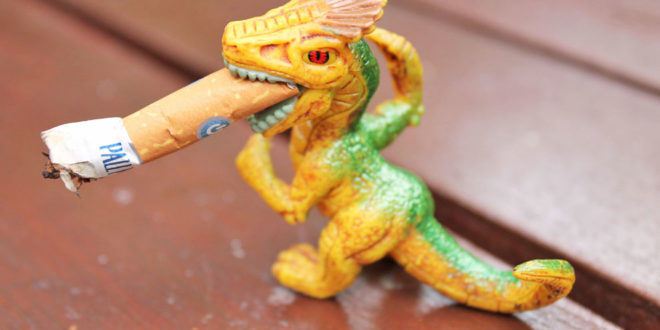A cloudburst of refuse defaces our streets, ponds and highways. My husband and I are in the habit of picking up trash everywhere we walk: to the mailbox, around the neighborhood, at the community park, and at the nearby river. I have started taking a trash bag on our weekend walks when we go near a river. Several weeks ago we filled one of the expandable bags with a variety of alcoholic beverage containers and assorted garbage. The stark contrast is inescapable that the very people who come to a beautiful place for fishing or relaxing end up marring the whole picture. I don’t understand this mindset nor my state’s lack of interest in endorsing required deposit money on beverage containers.
I am so disgusted and aggravated by cigarette butts at the beach or in my own yard, vast sections of fishing line left to tangle deer, birds, aquatic animals; tiny cigar packages–and once a tampon under a bench. Our daughter sees the same issues in parking lots near her work where disposable diapers are a curse. But the most infuriating of all to me is the trash (fast food wrappers or bottles or cans of soda, beer, sports drinks) left within six feet of a trash receptacle!
I attempt to explain this reckless disposal condition: they are too drunk to care; they have never been responsible for property; they believe that their taxes and community dues pay for removal; it’s not their yard; the trash will blow away or disintegrate (in 100 years!); and ultimately “it’s someone else’s job.”
I see two mindsets at work in response: some people seem obsessed with saving the planet while idolizing their own sustainability programs and attempts–as if the planet’s outcome is all up to us; meanwhile even avowed Christians can become reckless in their mental abandon of earth stewardship–it’s all going to burn and be restored anyway!
Respectful of Life
We would like to continue seeing birds, otters, dolphins, whales, and deer (maybe even squirrels, alligators, armadillos, raccoons and bears). So somewhere in the middle, in the meantime that includes my grandchildren, I want to do what is wise and responsible to keep my home, neighborhood, city, state and country respectful of life. Cleanliness and order, green spaces and wildlife all promote better physical, mental, and spiritual health. Though I cannot humanly be responsible for everything in or on the land, sea and air, I can do my part for what is in my path.
I believe that God gave humans a good creation and a directive to “take care of it” (Genesis 2:15, NIV). Everything in God’s creation is suffering from the effects of sin and selfishness. We can expect loss, pain and change. Sadly, so much of that creation has no way to speak for its suffering in this “bondage to decay,” (Romans 8:19-22). Certainly I have hope for a world ultimately restored to its pristine condition for an eternity of life in God’s presence (Revelation 21-22). Yet we can influence the waiting period until His final acts of restoration.
Questions for personal journaling or group discussion:
1. How do you determine what your “part” is in caring for the earth?
2. What do you think is the best response to littering?
Karen Spruill writes from Florida.
If you liked this, you may also like New Life | Why We Should Take Care of Our Environment
© 2002 - 2025, AnswersForMe.org. All rights reserved. Click here for content usage information. Answers for Me Support & encouragement for every-day life
Answers for Me Support & encouragement for every-day life



